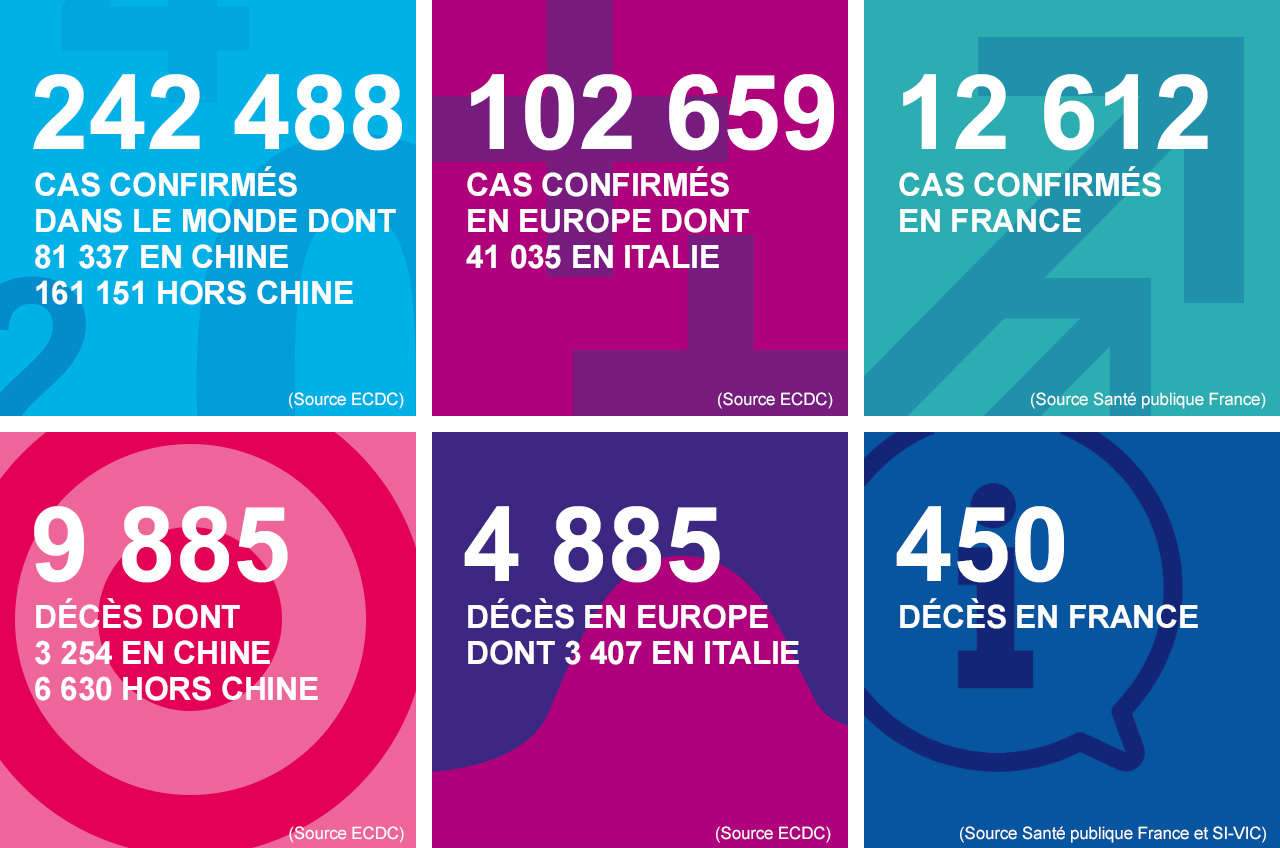As feared, the situation is worsening in the Region. The LRA and the Regional Prefecture call for full compliance with barrier and containment measures.
Since January 24, 2020, France has had 12,612 confirmed cases of Coronavirus and 450 deaths since the beginning of the epidemic.
In the Grand Est region, one of the most affected regions in France, 1551 people were hospitalized as of March 20 at 3pm, 352 of whom are in intensive care (nearly 9% are under 60 years old).
The total number of virologically confirmed deaths for the Greater East since the beginning of the epidemic is 105.
In addition, 284 people have already been discharged from hospital, their health status having been considered satisfactory.
This development confirms that the situation is worsening, so it is more than essential to limit travel and strictly respect the barrier measures.
Solidarity between health establishments in the region
The medical and healthcare teams of the Greater East region are fully mobilized to ensure that patients are cared for in optimal conditions, whether in the city or in hospital. Inter-establishment solidarity in the region works perfectly, both between departments and between public and private establishments.
To date, 80 intensive care beds from private clinics have been made available.
Thus, private clinics are mobilized and participate in the effort by making personnel and equipment available, by caring for patients with covid-19 outside of resuscitation or in resuscitation.
Some clinics, which had no resuscitation activity previously, have even requested an exceptional authorisation to participate in the effort. Five have already been issued.
Evolution of the method to quantify the Covid-19 epidemic in the Far East
Surveillance of Covid-19 changed during the different phases of the epidemic’s evolution. In the early stages, biological confirmation was routine for possible cases and after this test either the case was excluded or confirmed. The number of confirmed cases reliably reflected the evolution of the epidemic over time and the identification of viral circulation areas was possible.
Since the transition to the epidemic phase, this confirmation is no longer systematic. The recommendations are now to perform diagnostic sampling only for certain categories of patients with symptoms suggestive of VIDOC-19 (frail people, hospitalized persons, health professionals). Testing all patients presenting symptoms would saturate the screening system, whereas for serious cases and collective structures of frail people, screening allows immediate action to be taken.
The number of confirmed cases is now used to guide management measures but does not reflect the reality of virus circulation in the territory.
Furthermore, in the coming days, Santé Publique France will produce an epidemiological bulletin, in the manner of the flu, to quantify the extent of the epidemic in the country. This new surveillance method should also lead to the end of the “biological confirmation” census.
Instructions to be followed
The Ministère des Solidarités et de la Santé regularly updates its recommendations to protect your health and recommend the right actions to take in the face of the COVID-19 Coronavirus. When faced with infections, there are simple steps you can take to protect your health and the health of those around you:
– Stay home,
– Wash your hands very regularly with soap or use a hydro alcoholic solution,
– Cough or sneeze into your elbow or into a tissue,
– Use a disposable tissue and discard,
– Salute without shaking hands and avoid hugs,
– STAY AT LEAST ONE METRE AWAY FROM OTHERS, AVOID GATHERINGS, LIMIT MOVEMENT AND CONTACT: RESPECT CONFINEMENT
You have symptoms (cough, fever) that remind you of Covid-19: stay home, avoid contact, call a doctor before going to the office. You can also benefit from a teleconsultation.
If symptoms worsen with difficulty breathing and signs of choking, call the SAMU-Centre 15.
For all other situations and general information: call the national toll-free number at
0 800 130 000 which will tell you what to do.
You will find more information on the Government websites of the Ministry of Solidarity and Health and Public Health France.

